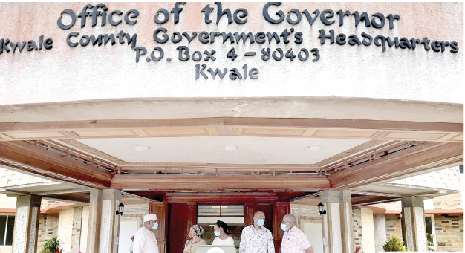Kenyans brace for lean Christmas celebrations

Kenyans are staring at a broke Christmas with most not sure whether or not to travel with their families upcountry owing to lack of disposable incomes, occasioned by tough economic times experienced over the last 12 months.
The festive season is traditionally the ideal time for most Kenyans who live in urban areas to migrate back to the village.
But with a sizeable portion of cash committed to settling mortgages, debts, rent and school fees in January, coupled with dwindling opportunities for an extra coin over the lapsed year and layoffs, most Kenyans prefer to be prudent in their expenditure going into the New Year.
Economics lecturer at United States International University (USIU) observed Albert Onyang told Business Hub:
“Tell me how many listed companies have announced profit warnings. Personally, I have approached a number of companies for consultancy jobs but have been turned away. What does that tell you? That there is very little money,” he said.
Bare essentials
At the Ngong road-based Carrefour Supermarket, a shopper, Peter Mwan’gan’gi said unlike last year, he is limiting his spending to the bare essentials and will look out for discounts and offers to ease his shopping pressure, keeping in mind that his three children are reporting to school in January.
Along Luthuli Avenue, a Kisii shuttle-based operator, Jared Mohenga decried the low number of people booking shuttles to travel upcountry for Christmas, saying last year, during the same period, their vehicles were fully booked.
“This year, there are fewer passengers, forcing us to adjust our fares from Sh3,000 to Sh1,500,” says Mohenga.
With only four days left to Christmas, most shopping malls, which previously would be flooded with revellers; mostly early birds trying to catch the best deals before the malls are flooded, are empty.
Staff at one of the leading supermarkets along Thika Road says shoppers’ turnout has drastically shrunk this year compared to previous years, saying although Christmas is less than a week away, few shoppers are frequenting the supermarket.
“The economy is bad. Even with the Christmas offers, people are still not shopping as anticipated, and those who shop do not do it in bulk, just a few items here and there. However, we hope that there will be an upsurge as we approach Christmas Day,” he says.
Eastleigh, a favourite shopping stop for Kenyans, told the same narrative.
“If you were to visit last year, you would have found just a few items left hanging. Even our stores would almost be empty because we had customers buying in bulk.
But this time, the most they pick are two items instead of several of each. This time, we have to be a bit more patient and hope they come and shop,” says Abu-Bakr Ahmed, a wholesale shop owner.
These sentiments mirror a December holiday retail survey conducted in November by Viffa Consult, in collaboration with the Retail Trade Association of Kenya (Retrak) anchored on the background of a slowed economy. The survey sought to predict what people will be buying during this festive season.
“Our survey showed that people will buy basic commodities like foodstuffs, which are bundled and discounted to entice consumers into buying, for instance, a package consisting of sifted maize flour, cooking fat and say a matchbox,” said, Viffa Consult managing director Victor Agolla.
he observed that the situation is a reflection of a struggling economy that has led to a net reduction in disposable income leading to budget cuts at household levels.
Lean budgets
The 20-day study projects many households planning to spend between Sh5,000 and Sh30,000, with the frequency of shopping indicating that 25 per cent will hold onto their hard-earned money until a few days before Christmas, a sure signal of lean budgets to cope with the New Year.
It indicates that consumers have prioritised their expenditure strictly to cater for commodities that will serve their Christmas and New Year needs like food, drinks, clothes, travel, accommodation, toiletries, books, and stationary.
“The priority list is a reflection on the state of the economy. It has been a tough year with many Kenyans spending on credit terms,” said Agolla of the credit crunch, which has led to lower consumer demand, as buyers grapple with lack of access to credit, partly occasioned by lower productivity in the agricultural sector, which is a major employer in the country. Additional reporting from Grace Wachira and Ann Nyathira








